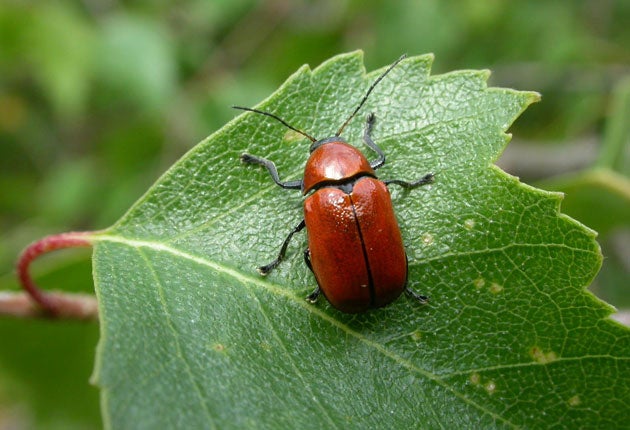Beetles staging a comeback

Your support helps us to tell the story
From reproductive rights to climate change to Big Tech, The Independent is on the ground when the story is developing. Whether it's investigating the financials of Elon Musk's pro-Trump PAC or producing our latest documentary, 'The A Word', which shines a light on the American women fighting for reproductive rights, we know how important it is to parse out the facts from the messaging.
At such a critical moment in US history, we need reporters on the ground. Your donation allows us to keep sending journalists to speak to both sides of the story.
The Independent is trusted by Americans across the entire political spectrum. And unlike many other quality news outlets, we choose not to lock Americans out of our reporting and analysis with paywalls. We believe quality journalism should be available to everyone, paid for by those who can afford it.
Your support makes all the difference.A colony of one of England's rarest beetles has been found hiding out in Sherwood Forest, Government conservation agency Natural England said.
The hazel pot beetle has been in decline across most of England since the 1960s and is all but extinct across the country.
The beetle, which is hard to spot as it hides out in the leaf litter in a self-made "pot" constructed out of its own dung, was absent from Sherwood Forest for 70 years until a chance sighting was made in 2008 by members of the public Trevor and Dilys Pendleton.
The sighting raised hopes the forest was offering a refuge for the beetle, which is one of England's largest and most endangered.
Following the discovery Natural England launched a three-year survey into the Sherwood Forest population, which was led by the Pendletons who are beetle enthusiasts, that found a population existed in good numbers and further populations could yet be discovered.
Dr Helen Phillips, chief executive for Natural England, said: "The hazel pot beetle has all but disappeared from most of England.
"The confirmation that a sizeable colony exists in Sherwood Forest is very encouraging news and we are working to develop more of the special habitat this beetle requires to help strengthen its numbers.
"We want to do all we can to ensure that this extraordinary creature can expand from its refuge in Sherwood Forest," she said.
The discovery is important because Sherwood Forest is the only site in the East Midlands, and possibly in the whole of Britain, that has current records of the rare and elusive beetle.
Join our commenting forum
Join thought-provoking conversations, follow other Independent readers and see their replies
Comments